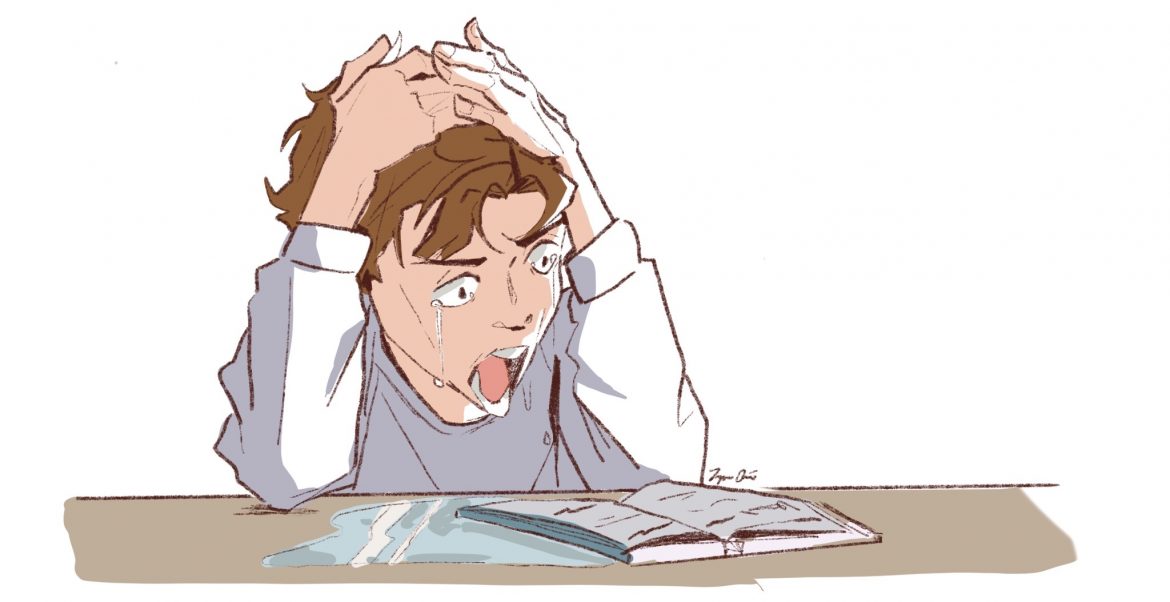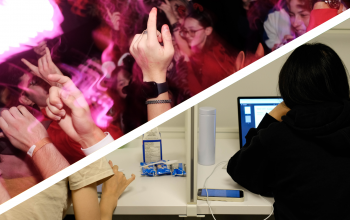Illustration Credit: Joyce Qiu, Illustration Editor
The purpose of our weeklong break in mid-November
Victor Buklis, Editor-at-Large
Fall Reading Week has come and gone, and now students across U of T are making their way through the final third of this semester, preparing for final exams and assignments. Students talk with each other about what they did over the weeklong break from classes: studied, slept, went on vacation, applied for summer jobs, put up Christmas decorations, did assignments. Some are refreshed and ready to take on the last few weeks leading up to finals season, some not so much; others are somewhere in the middle.
It’s not news that students can get up to any number of different things during Reading Week. But then comes a question: what are we supposed to do during Reading Week? Study? Not study? “Reading Week activities” of some description? The answer is the subject of debate, not least because there is no official statement in the Faculty of Arts & Science academic calendar as to what Reading Week is for.
Indeed, the most interesting mention of Reading Week in the calendar is the following: “No term test may be held during Reading Week in November and in February.” Aside from the sessional dates describing when these weeks occur, the only other mention is that International or Indigenous Course Modules occur over Reading Week — and most courses do not have these modules. For most classes, then, the only stipulation is that there cannot be any tests during Reading Week. That’s not much.
Perhaps a look into when the November week was introduced would help. For context, prior to a few years ago, Reading Week only took place in February. There was no Fall Reading Week, only a two-day break in November. Back in October 2015, The Varsity ran an article with the headline “UTSU, ASSU to hold referendum on Fall Reading Week.” The article suggests that promoting good mental health for students was part of the push for a week without classes. Unsurprisingly, students at the time voted strongly in favour of a Fall Reading Week: 6,112 votes for and 491 votes against, with 22% turnout. The first Fall Reading Week was November 6–10, 2017.
So: it sounds like students wanted a chance — and more than one that lasted just two days — to rest during the fall semester, and they voted for as much. Furthermore, Arts & Science says that testing is not to happen during Reading Week. Taken together, it sounds like Reading Week is not designed for much schoolwork to take place.
Of course, none of this is to say that students can’t use Reading Week for studying. It doesn’t have to be a vacation — maybe some students could find themselves able to get ahead in their courses. Others might want to catch up on missed readings and homework. Maybe others simply want to refine their knowledge of course content. That part is up to the individual student. But this much-anticipated week doesn’t need to be exclusively about school either.
As for my own experiences, I’ve usually spent Reading Week balancing the desire to rest with the need to catch up on the occasional missed readings. Given that I tend to enter “rest mode” once Reading Week hits, catching up on a reading that goes unfinished amid the flurry of events during midterm season (read: October) tends to happen later in the week rather than sooner. Reading Week tends to feel less restful than hoped for in these circumstances.
Thankfully, I had little catch-up this year, so this Reading Week was possibly my most restful yet. I still did work, but it didn’t drag on in the way it has before. The week did what I think it was supposed to: made me ready to tackle the last weeks of the semester with more energy and focus than before.
I fortunately haven’t had an assignment due during Reading Week, although I hear that it happens and am doubtful as to whether that is allowed under Arts & Science policy. If assignments are allowed but tests aren’t, I’d say that sounds like a technicality. Let’s not use such logical gymnastics to turn Reading Week into something other than it is. It may not necessarily be a vacation week, but it is also not solely a week for studying without classes.




